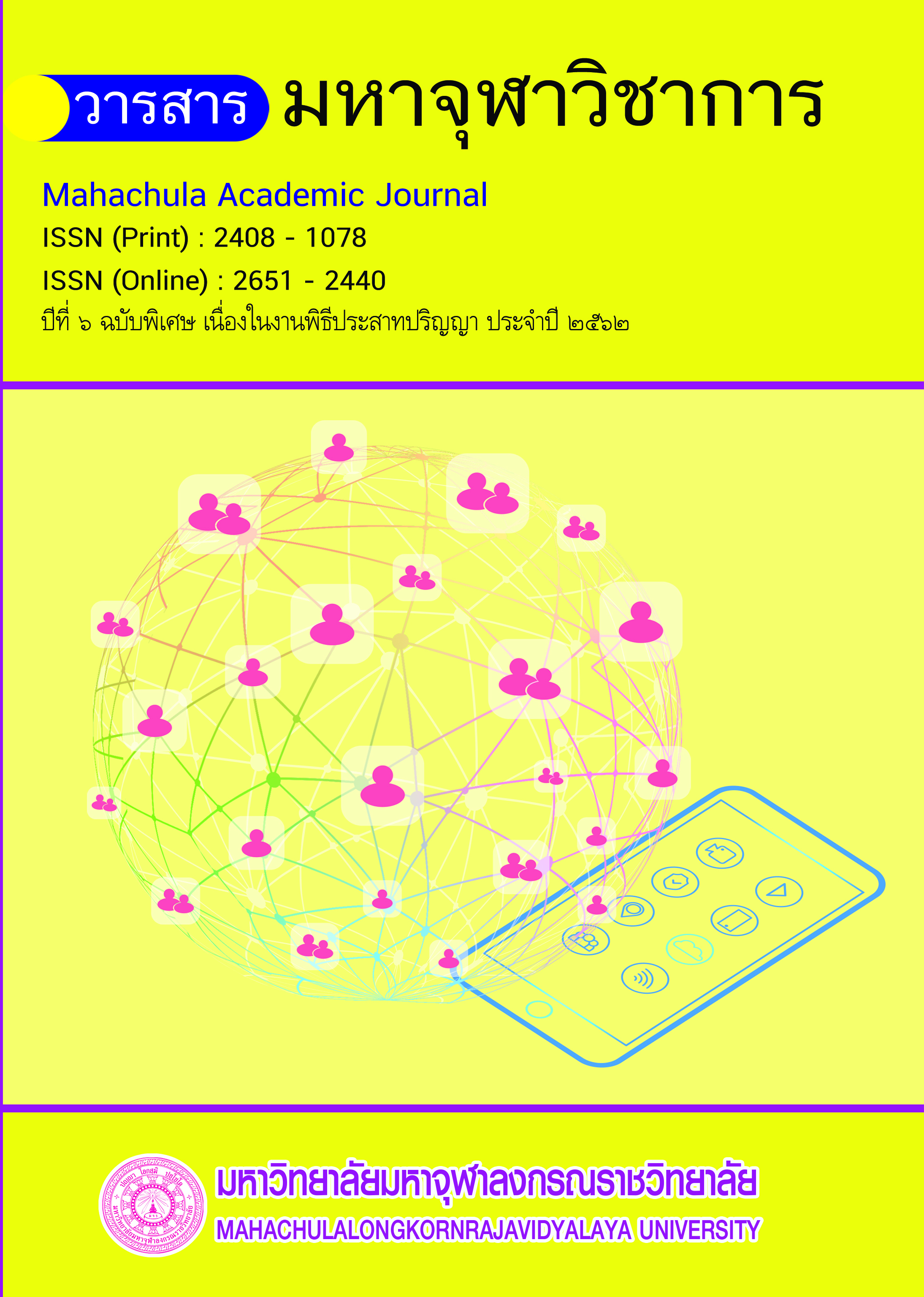The Development of Management Model and Standard of Provincial Meditation Centers in Bangkok
Main Article Content
Abstract
This research aims to: i) study the management model and standard of Provincial Meditation Centers in Bangkok, ii) study the management components of Provincial Meditation Centers in Bangkok, and iii) provide guidelines for the development of the management model and standard of Provincial Meditation Centers in Bangkok. The qualitative research method was conducted in this study. The data were collected from 23 key informants through in-depth interview from five Provincial Dhamma Practice Centers in Bangkok. The group discussion was also taken in this study. Content analysis technique was employed for data analysis.
The findings are concluded as follows:
1. The management model of five Provincial Meditation Centers in Bangkok was applied by four suitable things (Sappaya), namely, suitable abode (Avasa-sappaya): the centers have to be clean, peaceful, shady, cool and pleasant and no external noise being disturbed, suitable food (Ahara-sappaya): food provided in the centers should be clean, hygienic and suitable for Dhamma practice, suitable person (Puggala-sappaya): Dhamma practitioners are friendly to each other and dedicated for the public, and suitable Dhamma (Dhamma-sappaya): four foundations of mindfulness (Satipatthana IV) is teaching suitable for Dhamma practitioners.
2. The management components of five Provincial Meditation Centers in Bangkok consisted of five aspects: for administrative aspect, the abbot or head of the center has to pay attention and focus on best management; for building one, there should have sufficient and clean facilities like bathrooms, restrooms; for information and communication, many media channels should be supported to disseminate information like CD, internet etc.; for Dhamma master team, monks, novices and personnel in the center have played role model in Dhamma practice; and for planning, there should organize suitable Dhamma course for common persons that would be beneficial for their daily life.
3. The proposed guidelines for the development of the management model and standard of Provincial Meditation Centers in Bangkok revealed that all five Dhamma practice centers have implemented four models and standards, namely, management depending upon personal factors as component, management using internal resources as the fundamental component, management focusing on participation of persons within the temple, and management with clear objectives.

